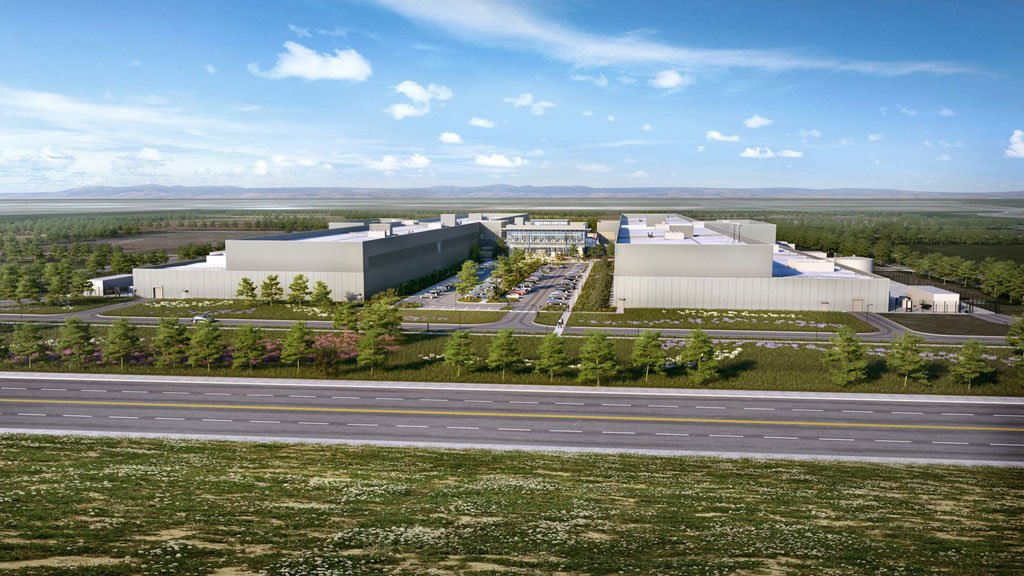
The recent announcement of a new data facility in Temple, Texas, for social media giant Meta, is further proof that the state is on a data center roll. Meta, formerly known as Facebook, will begin construction of a 900,000 square foot Hyperscale Data Center this spring on a site covering almost 400 acres.
Temple is located midway between Dallas-Fort Worth and Austin, an area comprised of 28 million people all within a 2.5-hour reach. Temple itself has a population of 82,000 in a fast-growing regional employment hub of 450,000 residents. Such locations are increasingly important for large-scale developments such as this. Land available at low cost yet within easy range of large population areas is a magnet for companies like Meta.
Meta’s Hyperscale Data Center is scheduled to be online by 2024. Construction over the next two years is expected to employ 1,250 workers and create 100 operational jobs after completion. The data center will support all of Meta’s apps and services, including Facebook, WhatsApp, Instagram, and Meta Quest. The company will also use the facility to accommodate the growing number of photos and videos being shared.
The $800-million facility in Temple is Meta’s 17th data center in the United States, and its second in Texas. The company broke ground in 2015 on a new facility in Fort Worth and brought it online in 2017. It has since grown into a $1.5 billion investment totaling more than 2.6 million square feet covering over 150 acres. Concurrent with the Temple announcement, Meta also announced plans for a new data center in Kansas City, bringing the company’s investment in U.S. data facility construction to over $16 billion.
In keeping with Meta’s practice across all its facility operations, the company says the Temple Hyperscale Data Center will be supported by 100% renewable energy. Meta has a practice of adding renewable energy to the local grids at all of its data center locations. In fact, it has already invested more than 700 MW of new wind and solar energy in Texas alone.
Meta claims to build and operate some of the world’s most sustainable data centers. The company says its data facilities use 32% less energy, have achieved net-zero carbon emissions, and are LEED Gold level certified. They are also 80% more water efficient on average than the industry standard, with a goal to restore more water than consumed by 2030.
This latest announcement from Meta is part of a larger picture that sees the State of Texas positioned as a prime destination for high-profile technology. Some of this investment is encouraged by tax incentives. In the case of the Temple Hyperscale Data Center, Meta will receive partial property tax abatement for 10 years from the city and the Temple Economic Development Corp..
But the attraction of Texas is more than just the offering of tax breaks, said Adrian Cannady, president and CEO of the Temple Economic Development Corporation.
“Texas was recently named the top state in the nation for tech worker migration. When you combine that with Temple’s low cost of doing business and central location between major markets, it creates an incredible competitive advantage for our region.”
Katie Comer, community development regional manager at Meta, said Temple’s established infrastructure, strong talent pool, and supportive community partners were other compelling attractions.
“Community partners have been vital to this project, and we look forward to calling Temple home for many years to come.”
Temple is looking to the future, and Meta provides the type of investment and employment opportunities the city seeks, Cannady added.
“Our goal was always to look to diversify our economic base.”
He explained Meta’s impact on the community will not only create jobs but will allow the city to continue its investments in schools, non-profits, and community projects.
“This growth is something that we’re very much looking forward to. It is really the backbone of the future of our community.”
The enthusiasm being expressed by Meta and its community partners regarding the future prospects for Temple was echoed by Texas State Representative Hugh Shine.
“This is exciting for us in the community to be able to partner with and work with a company that’s really on the leading edge.”


Responses